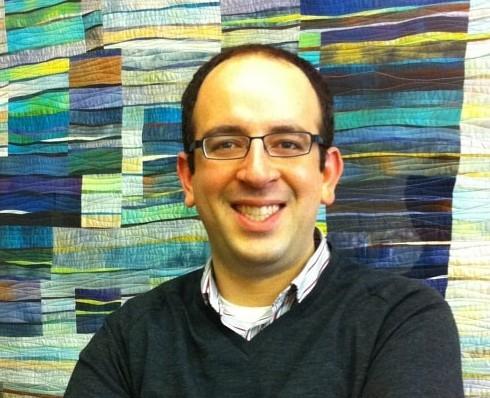Dr. Nader Ghasemlou
Assistant Professor

Dr. Nader Ghasemlou leads a multi-disciplinary research team studying the contribution of the cellular and molecular immune response to diseases of the nervous system, including multiple sclerosis, spinal cord injury, and inflammatory/neuropathic pain at Queen's University. The Pain Chronobiology & Neuroimmunology Lab uses a reverse-translational model to study disease, using clinical data to inform our fundamental animal studies, with the ultimate goal of identifying potential new therapeutic targets. His group has begun using the body's internal clock, or chronobiological rhythms, to identify new mediators of disease. This work is made possible through multiple collaborations with patient-partners and clinicians, including the Canadian Chronic Pain Network.
Dr. Ghasemlou completed his Postdoctoral Fellowship (2009-2014) as a Banting Fellow at Harvard Medical School where he studied inflammatory and neuropathic pain in Dr. Clifford Woolf's Neural Plasticity Research Group. He carried out his doctoral studies in Neuroimmunology at McGill University (2002-2008) under the supervision of Dr. Samuel David, where he studied neuro-immune interactions in the spinal cord causing tissue damage. His first research position was as a summer student in the laboratory of Dr. Jack Antel at the Montreal Neurological Institute (1996-1997) where he first learned of the damaging consequences of MS.
Learn more about Dr. Ghasemlou
How did you become interested in MS research? What inspires you to continue advancing research in this field?
I first became interested in MS and neuroimmunology as an undergraduate student, having spent two summers in the laboratory of Dr. Jack Antel at the Montreal Neurological Institute. I then carried out a PhD with Dr. Samuel David at McGill University, and learned of the devastating consequences of the disease on peoples' lives. Having met many people living with chronic MS pain, my goal is to understand how we can control the body's own rhythms to reduce these outcomes.
What do you enjoy most about doing research and what are some of the challenges you face?
My ultimate goal is that I will make new discoveries that will hopefully one day change someone's quality of life. I wake up every morning, excited to head into the lab, so that I can learn something new and see my own students and trainees excited by their work. Our biggest challenge is the slow pace of research, but our perseverance keeps us going!
Describe the importance and level of collaboration in your research?
Our work is built upon collaborations between researchers and clinicians bringing different skills to the table. Without bioinformatics/genetics support, we wouldn't be able to identify the genes and pathways underlying disease; without our clinician partners, we wouldn't have the necessary "patient-first" perspective critical to carrying out transformative research.
How important is the support from the MS Society in enabling you to conduct research?
Funding levels in Canada are at an all-time low; the national funding agencies are chronically underfunded and stretched thin. Support from the MS Society allows us to carry out our work, train our students, and help Canada innovate and develop highly qualified personnel to keep our country's scientific engine moving forward.
If you could ask one question to a person living with MS that would help you design your study, what would it be?
Tell me about your pain triggers, how you feel pain, and what helps you deal with it?